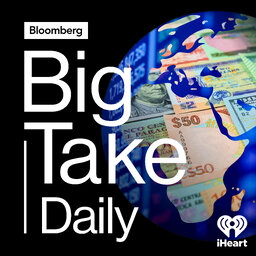Chatbots And Deepfakes Are Coming For Your Election Cycle
As the saying goes: a lie gets halfway around the world before the truth has a chance to put its pants on. As AI is increasing productivity across industries, it’s also raising concern about how to regulate its output and keep it from putting many of us out of work. And as the next campaign season approaches, another question comes into focus: what about its potential to quickly create and spread misinformation about political rivals?
Bloomberg’s Laura Davison and Emily Birnbaum raise the curtain on the little regulated and largely vexing ability to disseminate political hay and deepfakes via a chatbot.
Read more: AI Is Making Politics Easier, Cheaper and More Dangerous
Listen to The Big Take podcast every weekday and subscribe to our daily newsletter: https://bloom.bg/3F3EJAK
Have questions or comments for Wes and the team? Reach us at bigtake@bloomberg.net.
 Big Take
Big Take


